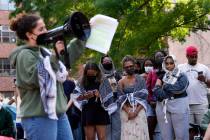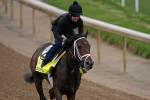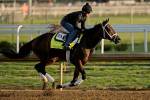EDITORIAL: BLM once again lacks horse sense
Everyone makes mistakes. Unfortunately, not everyone learns from them.
Take the U.S. Bureau of Land Management. The agency’s oversight of the West’s wild horses has been defined by failure after expensive failure. Far from an endangered species, the creatures are crowding livestock and wildlife from rangelands, trampling terrain and multiplying to the point that herds are starving to death.
The federal government fears the political fallout of selling the animals to slaughter, so thousands of the horses are rounded up and held in corrals or shipped to Midwest ranches. The result: about 40,000 wild horses and burros live in the wild — too many for rangelands to sustain — and more than 48,000 live in corrals or on ranches at taxpayer expense. Over the past decade, almost 100,000 horses have been removed from rangelands, and some drought-struck herds have become dependent on human-delivered water to avoid dying of thirst. There’s nothing “wild” about that.
Last June, an independent panel of the National Academy of Sciences urged authorities to spend money on fertility control instead of roundups and holding pens. And in August, a paper in the journal Science recommended much the same course, but said that even forced, widespread contraception wouldn’t be enough to eliminate roundups in the near-term. The research from Robert A. Garrott of Montana State University and Madan K. Oli of the University of Florida estimated the status quo of roundups and storage would cost the public about $1.1 billion over the next 17 years.
So how has the BLM responded? As reported by Martin Griffith of The Associated Press, the agency is soliciting bids for new short-term holding facilities for wild horses. It’s unclear how much the BLM plans to spend and how many corrals will be built. But the bids, which will be accepted until June 2, amount to a double-down on one of the agency’s biggest mistakes.
“The fact that the BLM is seeking more holding space to warehouse captured horses and plans to round up 600-plus horses in Utah demonstrates that the agency is continuing in the wrong direction,” Suzanne Roy, director of the American Wild Horse Preservation Campaign, told Mr. Griffith on Sunday. “This stubborn pursuit of broken policies is costly to American taxpayers and devastating to our iconic wild horses and burros.”
Herd populations will continue to explode without a dramatic change of course. However, one option advocated by some horse supporters is the worst of all: reducing or eliminating livestock grazing on public lands to accommodate larger wild horse herds. Such an action would kill jobs and shut down businesses while guaranteeing horse overpopulation at a larger scale.
If a wild species struggles to survive, the public pays untold millions of dollars to keep it alive, even if costs people their livelihoods. If a wild species overpopulates, the public pays untold millions of dollars to keep surplus numbers alive, even if it costs people their livelihoods.
At this point, the BLM’s best option is getting off rangelands, leaving wild horses alone and letting nature take its course.























